The Haunting in Connecticut
 for some intense sequences of terror and disturbing images.
for some intense sequences of terror and disturbing images.
Reviewed by: Paige Brennan
CONTRIBUTOR
| Moral Rating: | Extremely Offensive |
| Moviemaking Quality: |
|
| Primary Audience: | Adults |
| Genre: | Horror Thriller |
| Length: | 1 hr. 32 min. |
| Year of Release: | 2009 |
| USA Release: |
March 27, 2009 (wide—2,600 theaters) |
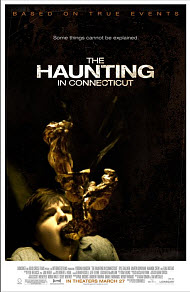
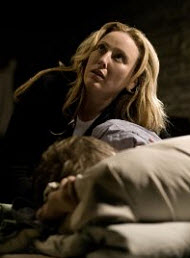
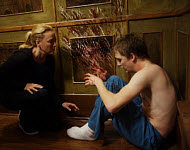
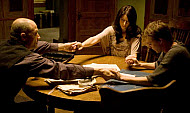
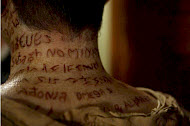
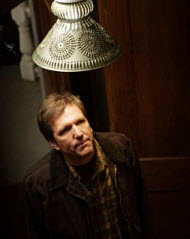
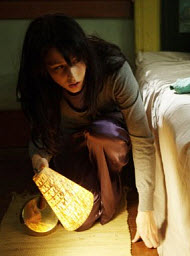
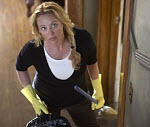
What is the Occult? Answer
THE OCCULT—What does the Bible say about it? Answer
Spirits in the Bible
Is Satan a real person that influences our world today? Is he affecting you? Answer
Demon Possesssion and Influence—Can Christians be demon possessed? In what ways can Satan and his demons influence believers? Answer
Where did cancer come from? Answer
How did bad things come about? Answer
Why does God allow innocent people to suffer? Answer
What about the issue of suffering? Doesn’t this prove that there is no God and that we are on our own? Answer
Does God feel our pain? Answer
What kind of world would you create? Answer
| Featuring |
|---|
| Amanda Crew, Elias Koteas, Virginia Madsen, Kyle Gallner, Martin Donovan, Sophi Knight, Ty Wood, Erik J. Berg, John Bluethner, D.W. Brown, John B. Lowe, Adriana O'Neil, Will Woytowich, James Durham, Darren Ross, Sarah Constible, Nicholas Podbrey, Blake Taylor, Keith James, Kelly Wolfman, Jessica Burleson, Matt Kippen |
| Director |
|
Peter Cornwell |
| Producer |
| Gold Circle Films, Integrated Films & Management, Paul Brooks, Daniel Farrands, Brad Kessell, Phyllis Laing, Jeff Levine, Scott Niemeyer, Wendy Rhoads, Jonathan Shore, Dylan Tarason, Andrew Trapani, Norm Waitt, Steve Whitney |
| Distributor |
| Gold Circle Films |
“What if the only explanation for what you saw was unbelievable?”
Based on a “true story,” “A Haunting in Connecticut” centers around Sarah Campbell (Virginia Madsen) and her son Matt (Kyle Gallner). Matt suffers from a progressive form of cancer that requires daily treatments from a hospital more than 300 miles away. The long periods of driving only compound Matt’s illness, and, in response, Sarah decides to rent a house in Connecticut closer to the hospital.
Restricted by financies, Sarah is delighted when a spacious house is within her family’s price range. Sound too good to be true? That’s because it is. Sarah learns that the house was once a funeral parlor which has kept the house affordable and on the market. However, this factor does not delay the Campbell family from moving into the eerie house. The honeymoon doesn’t last long, as Matt begins to have dreams and hallucinations about the previous owners of the house and their perverse endeavors to contact and preserve the dead, the mortuary abounding with viable subjects.
One dream in particular leads Matt to a locked doorway where he glimpses through the glass the grotesque procedures enacted upon the dead by the director of the funeral parlor, Ramsey Aickman. Upon waking, he opens the door and the family discovers the room was utilized to embalm corpses, much of the equipment left after many years. From this realization, the drama unfolds, complete with photos of the dead, séances, and a tortured family history.
Surprisingly, this film is offensive both spiritually and morally.
First and foremost, the film delves heavily into occultist practices including séances and necromancy. The movie is very graphic in the representation of both.
For example, during one of Matt’s visions, we discover that a young apprentice to the funeral home owner, Jonah, was a séance medium. It is through Jonah and his experiences as a medium that the film explains what necromancy and ectoplasm are and how one accurately participates in both. To have a more affective séance, Mr. Aickman mutilated the bodies further and as a result, Jonah conjured ectoplasm, a violent and physical manifestation of successful contact with the dead. In a disturbing image, as seen on the movie poster, this spiritual substance begins to flow out of his mouth. In the film, ectoplasm is considered to be the prized payoff of a successful and powerful séance.
Such paranormal and demonic activities are in direct opposition to the ways and commands of God. In Leviticus, God warns against the practice of séances and the use of mediums.
“Do not turn to mediums or seek out spiritists, for you will be defiled by them. I am the LORD your God” (Leviticus 19:31).
The prophet Isaiah echoes the same urgency to avoid conjuring spirits and urges his people to consult God in all matters.
“When men tell you to consult mediums and spiritists, who whisper and mutter, should not a people inquire of their God? Why consult the dead on behalf of the living? To the law and to the testimony! If they do not speak according to this word, they have no light of dawn” (Isaiah 8:19-20).
Fundamental moral themes prevalent in the film are control and lying. Sarah is a mother desperate to hold onto her son in the face of sickness and death. When Matt’s illness peaks or worsens, she often secludes herself with a rosary to pray. She is shown pleading with God to not take her son, going—so far as to authoritatively tell God that He can’t have Matt. Such instances, while very human ignore the sovereignty and goodness of God.
Sarah believes that her son is better off under her care than God’s. These illusions of control set one up for disappointment and provoke a view of God as a villain. In the Sermon on the Mount, Jesus urges us not to worry and illustrates this point by telling of the Father’s care for even the littlest creatures, displaying His great sovereignty.
“Look at the birds of the air; they do not sow or reap or stow away in barns, and yet your heavenly Father feeds them. Are you not much more valuable than they?” (Matthew 6:26).
The fight for control is also illustrated in Sarah’s husband Peter’s alcoholism. Peter and Sarah live in the fantasy that human will alone can conquer addiction. After coming home in a drunken stupor, Sarah tells Peter, “Your family needs your strength, not your self pity.” As Christians, we know that repentance from addiction or any sin is only possible with Jesus Christ and His Holy Spirit.
“I am the vine, you are the branches. If a man remains in me and I in him, he will bear much fruit; apart from me you can do nothing” (John 15:5).
A primary illustration of lying in this movie is how the characters try to sympathize with evil. Unfortunately, this is most strongly shown in the “Reverend,” played by Elias Koteas. Matt first meets the Reverend in the hospital, while undergoing another cancer treatment. After enduring many freakish encounters with the demonic, Matt and Sarah agree to have the Reverend exorcise their home. Upon entering the home and sensing the supernatural activity, the Reverend concludes that Jonah, the visualized ghost and apprentice of the funeral parlor owner, simply wants to be freed from the former mortuary that has become his soul’s prison. Furthermore, the Reverend believes that Jonah wants to free the other souls that died and endured perverse actions at the hands of the owner.
This sympathy for the dead is severely misplaced and mistakenly puts one face to face with the enemy. Jesus tells us that the enemy is the father of lies, and the idea that demons disguised as the dead deserve sympathy is a major lie.
One final point that disturbed me was Sarah’s concluding quote,
“Everyone says that God works in mysterious ways, they never tell you how mysterious those ways are. Consider yourself warned.”
I find this quote to be accusatory of God’s good and holy nature, somehow implying that He is capable of evil. The Bible tells us that the Lord works things for good for all that love Him and that God does not tempt. By my estimation, the mother’s quote seems to imply the opposite, painting a picture that God is a big guy on a power trip waiting to strike us down at any time, or that God somehow orchestrates evil as a means to reach good.
Good points about the movie are the non frequent use of profanity. However, the Lord’s name is taken in vain two times; “God” is said in vain once, and there is one other reference to the Lord. The acting is also very convincing. and the special effects noteworthy. In the end, good does triumph over evil, yet no glory is given to God, and there is no mention of the name Jesus.
Overall, this film is not worth your money or time. Though it is thought-provoking for a mature audience, the spiritual and moral compass does not point north.
Violence: Heavy / Profanity: Mild / Sex/Nudity: None
See list of Relevant Issues—questions-and-answers.


none
none
Moral rating: Average / Moviemaking quality: 4½
Moral rating: Average / Moviemaking quality: 4½
This movie does not glorify the Lord, instead, it gives the message that we can deal with demons without His help. I would not recommend this movie.
My Ratings: Moral rating: Extremely Offensive / Moviemaking quality: 4